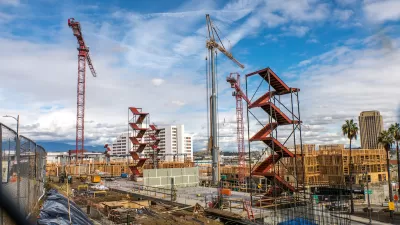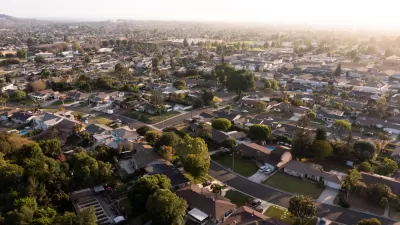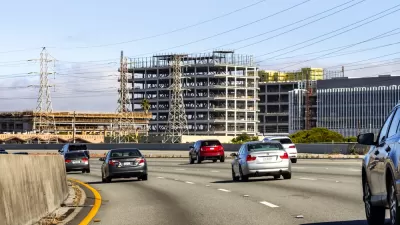New laws eliminate the murky, ‘free-for all’ approach to the policy, letting developers continue to build new housing projects under stricter guidelines.

The California state legislature passed two bills that clarify the ‘Builder’s Remedy,’ a formerly obscure policy that lets housing developments move forward in jurisdictions without state-approved housing elements. Under current law, developers can propose practically any kind of project on any lot.
According to an article on JDSupra, “[Assembly Bill 1893] replaces the ‘free-for-all’ approach to Builder's Remedy, and projects now must comply with new site restrictions, density limits, certain objective local standards and other mandated requirements. In exchange for these new restrictions, AB 1893 eases certain affordability requirements and offers Builder's Remedy applicants more explicit protection from common tactics used by opponents of Builder's Remedy projects.”
The policy came into sharp focus in recent years as more developers sought to apply it and the state cracked down on housing element noncompliance. The new bill sets stricter regulations for developers that will prevent projects from completely disregarding local standards while easing some regulatory burdens. “A companion law, AB 1886, clears the path for existing and future Builder's Remedy projects by foreclosing a number of legal arguments that anti-Builder's Remedy jurisdictions frequently employ to frustrate these projects.”
The bills await Governor Gavin Newsom’s signature.
FULL STORY: California Legislature Passes Major Reforms for "Builder's Remedy" Projects

Planetizen Federal Action Tracker
A weekly monitor of how Trump’s orders and actions are impacting planners and planning in America.

DARTSpace Platform Streamlines Dallas TOD Application Process
The Dallas transit agency hopes a shorter permitting timeline will boost transit-oriented development around rail stations.

Congressman Proposes Bill to Rename DC Metro “Trump Train”
The Make Autorail Great Again Act would withhold federal funding to the system until the Washington Metropolitan Area Transit Authority (WMATA), rebrands as the Washington Metropolitan Authority for Greater Access (WMAGA).

Supreme Court Ruling in Pipeline Case Guts Federal Environmental Law
The decision limits the scope of a federal law that mandates extensive environmental impact reviews of energy, infrastructure, and transportation projects.

Texas State Bills to Defund Dallas Transit Die
DART would have seen a 30% service cut, $230M annual losses had the bills survived.

Bikeshare for the Win: Team Pedals to London Cricket Match, Beats Rivals Stuck in Traffic
While their opponents sat in gridlock, England's national cricket team hopped Lime bikes, riding to a 3-0 victory.
Urban Design for Planners 1: Software Tools
This six-course series explores essential urban design concepts using open source software and equips planners with the tools they need to participate fully in the urban design process.
Planning for Universal Design
Learn the tools for implementing Universal Design in planning regulations.
Roanoke Valley-Alleghany Regional Commission
City of Mt Shasta
City of Camden Redevelopment Agency
City of Astoria
Transportation Research & Education Center (TREC) at Portland State University
US High Speed Rail Association
City of Camden Redevelopment Agency
Municipality of Princeton (NJ)





























